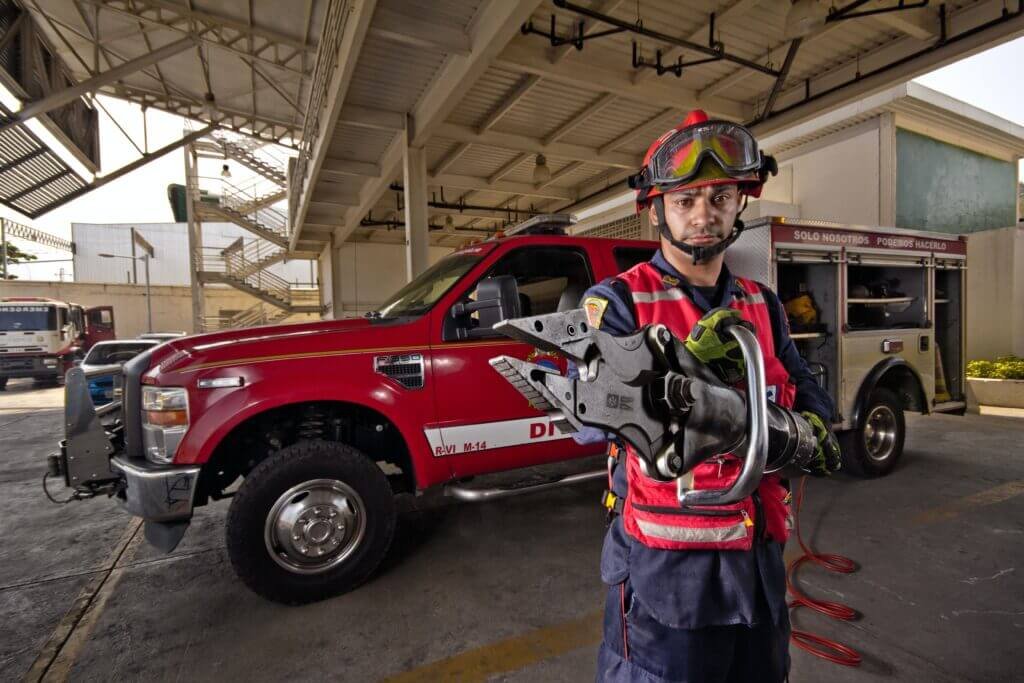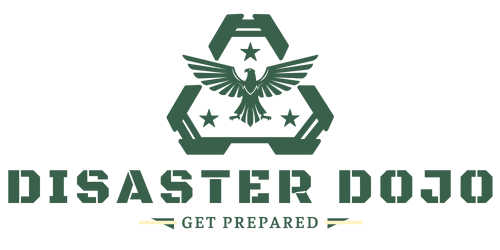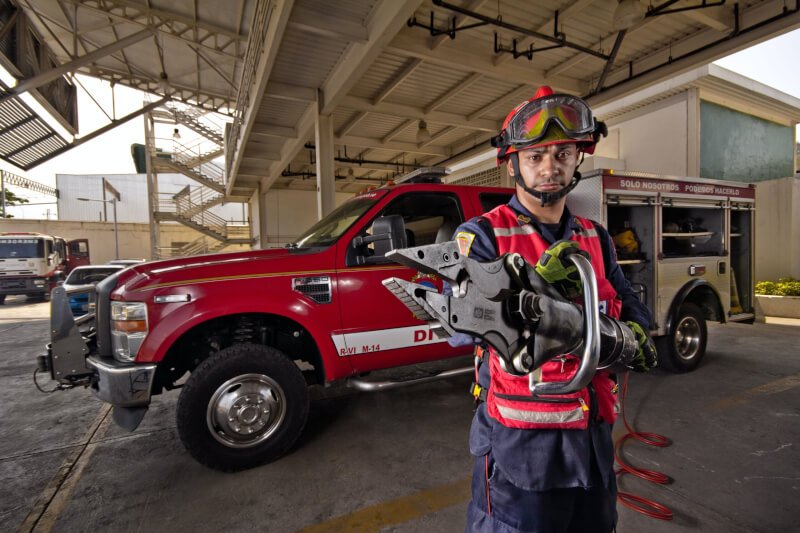Are you curious about the fundamental principles of prepping? Wonder no more, as this article aims to shed light on these essential guidelines. Whether you’re a beginner or experienced prepper, understanding these basic principles will equip you with the necessary knowledge and skills to effectively prepare for emergencies. From creating a robust emergency plan to building a well-stocked supply of essentials, this article will explore the core principles that form the foundation of prepping. So, let’s dive in and discover the key principles that will help you navigate any future challenges with confidence.

Understanding Prepping
The Definition of Prepping
Prepping, short for preparedness, is the proactive and deliberate act of preparing for unforeseen emergencies, disasters, or societal disruptions. It involves taking stock of potential risks and taking appropriate steps to enhance your ability to effectively respond and recover from these events. Prepping is not about living in constant fear or paranoia; it is about being responsible, adaptable, and self-reliant.
Importance of Prepping in Today’s World
In today’s world, where uncertainty seems to be the new norm, being prepared is more critical than ever. From natural disasters to pandemics, economic crises, and social unrest, various events can throw our lives into chaos. Prepping not only provides peace of mind but also empowers individuals and families to be self-sufficient, resilient, and capable of weathering unexpected challenges.
Types of Preppers
There is no one-size-fits-all when it comes to prepping. Different individuals have different motivations and priorities, which lead to different types of preppers. Some preppers focus on self-sufficiency and sustainability, prioritizing skills like gardening, energy independence, and resource conservation. Others emphasize security and defense, taking steps to safeguard their homes, learn self-defense, and build strong communities. Health-focused preppers prioritize medical training, physical fitness, and mental health preparedness. Financial preppers work towards creating emergency funds, reducing debt, and investing in tangible assets. Lastly, information and communication preppers stay informed about current events, practice alternative communication methods, and prioritize cybersecurity. Ultimately, the goal is to tailor prepping efforts to individual needs and circumstances.
Emergency Planning
Identifying Potential Hazards
The first step in emergency planning is identifying potential hazards specific to your geographical location and lifestyle. Consider the natural disasters prevalent in your area, such as hurricanes, earthquakes, wildfires, or floods. Additionally, think about human-made hazards like power outages, civil unrest, or cyberattacks. Understanding these risks will help you mitigate and prepare for them effectively.
Creating a Family Emergency Plan
Having a well-thought-out family emergency plan is crucial for ensuring the safety and well-being of your loved ones during a crisis. Start by establishing a communication protocol, including designated meeting points and emergency contacts. Identify roles and responsibilities for each family member, ensuring everyone knows what to do in different scenarios. It is also essential to regularly review and practice the plan to ensure everyone is familiar with it.
Stockpiling Essential Supplies
Building an emergency supply kit is an essential aspect of emergency planning. Stockpile non-perishable food items, clean water, necessary medications, personal hygiene products, and extra batteries. It is also advisable to have a first aid kit, flashlights, a battery-powered or hand-crank radio, and any other essential items specific to your family’s needs. Regularly check and rotate supplies to ensure they remain fresh and usable.

Self-sufficiency and Sustainability
Developing Survival Skills
One of the core principles of prepping is acquiring and honing survival skills. Learn essential skills such as first aid, fire starting, navigation, and basic self-defense. Familiarize yourself with methods of obtaining potable water, building shelters, and foraging for food in case of an extended crisis. Being self-reliant and adaptable greatly enhances your chances of survival and resilience.
Gardening and Food Preservation
Growing your own food through gardening promotes self-sufficiency and sustainability. Create a vegetable garden, even if it is small, to supplement your food supply. Learn about the different types of crops suitable for your climate and practice sustainable gardening techniques. Additionally, explore food preservation methods such as canning, dehydrating, and fermenting to extend the shelf life of your harvest.
Energy and Water Independence
Reducing dependency on external sources for energy and water is a crucial aspect of prepping. Explore alternative energy sources such as solar panels, wind turbines, or backup generators to ensure a continuous power supply during emergencies. Additionally, consider rainwater harvesting and water purification systems to meet your water needs. These measures enhance your self-sufficiency and reduce vulnerability during extended periods of disruption.
Security and Defense
Home Security Measures
Ensuring the safety of your home and loved ones is a top priority for any prepper. Take practical steps to secure your home, such as reinforcing doors and windows, installing motion sensor lights, and using high-quality locks. Consider investing in a home security system that includes surveillance cameras, alarms, and monitoring services. Regularly reassess and update your security measures to address any vulnerabilities.
Self-defense Training
Having the ability to protect yourself and your family is essential in any crisis situation. Consider enrolling in self-defense classes to learn basic techniques and strategies for personal protection. Train regularly to maintain proficiency and build confidence in your abilities. Remember, self-defense is about de-escalation and minimizing harm while ensuring your own safety.
Building a Community
No prepper is an island, and building a community of like-minded individuals provides additional resilience and support during emergencies. Join local preparedness groups or online communities to gain knowledge, share resources, and establish networks. Collaborate with neighbors to create a neighborhood watch system or develop mutual aid agreements. The strength of a community lies in its unity and collective efforts.

Health and Wellness
First Aid and Medical Training
Medical emergencies can occur at any time, making first aid and medical training invaluable. Learn and regularly update your knowledge of basic first aid techniques, CPR, and handling common injuries. Consider pursuing more advanced training, such as wilderness first aid or emergency medical responder courses. Having medical supplies and medications on hand is equally important.
Maintaining Physical Fitness
Physical fitness plays a vital role in preparedness. Engage in regular exercise and maintain a healthy lifestyle to increase your strength, endurance, and overall well-being. Incorporate activities that simulate real-life scenarios, such as hiking with a loaded backpack or practicing evacuation drills. Being physically fit equips you with the stamina and resilience needed during emergency situations.
Mental Health Preparedness
Preparing for emergencies involves not just physical readiness but also mental preparedness. Deal with the psychological impact of disasters by developing coping mechanisms and stress management techniques. Prioritize self-care and practice mindfulness to foster resilience. Stay connected with loved ones and seek professional help if needed. Mental strength will help you make sound decisions during challenging times.
Financial Preparations
Creating an Emergency Fund
Building an emergency fund is a crucial aspect of financial preparedness. Aim to save three to six months’ worth of living expenses in an easily accessible account. This fund will provide a safety net during unexpected job loss, economic downturns, or other financial crises. Regularly review and adjust your savings goals based on changing circumstances.
Reducing Debt and Expenses
Financial preparedness also entails minimizing debt and unnecessary expenses. Evaluate your current financial situation and develop a plan to pay off high-interest debts systematically. Prioritize essential expenses and reduce discretionary spending to free up funds for emergencies. Adopting a frugal mindset and living within your means will enhance your financial resilience.
Investing in Tangible Assets
Diversifying your investment portfolio to include tangible assets can provide an additional layer of financial security. Consider investing in precious metals like gold or silver, which can hold their value during economic uncertainties. Real estate, farmland, or rental properties are other tangible assets that can offer long-term stability and potential income streams.
Information and Communication
Staying Informed about Current Events
Being well-informed about current events and potential risks is essential for effective preparedness. Stay updated through reliable news sources, government alerts, and community forums. Follow trusted experts in various fields related to emergency preparedness. Regularly assess the situation and adapt your preparedness plans accordingly.
Alternative Communication Methods
During emergencies, traditional modes of communication can be disrupted. Having alternative communication methods is vital for staying connected with loved ones and obtaining crucial information. Invest in a battery-powered or hand-crank radio to access emergency broadcasts. Explore ham radio or other two-way radio systems to establish communication networks within your community.
Cybersecurity and Data Protection
In our increasingly digital world, cybersecurity and data protection are critical aspects of preparedness. Safeguard your personal information by using strong, unique passwords and enabling two-factor authentication. Regularly update and maintain antivirus software on your devices. Back up important documents and files both physically and digitally. Being proactive in protecting your digital assets enhances your overall preparedness.
Adapting to Change
Flexibility and Agility
Being prepared requires flexibility and agility in the face of changing circumstances. Plans and strategies might need to be adjusted as new information becomes available. Practice adaptability and open-mindedness to embrace unforeseen challenges. Learn to think on your feet and rapidly adjust your actions and decisions based on evolving situations.
Learning from Past Disasters
History offers valuable lessons, and learning from past disasters is crucial for effective preparedness. Study the events and responses of previous emergencies to gain insights into what worked and what did not. Identify areas of improvement and implement changes in your own preparedness strategies. Knowledge and understanding of past disasters can significantly enhance your ability to respond and recover.
Updating Preparedness Plans
Preparedness plans should not be static documents but living documents that evolve alongside changes in your life, surroundings, and the world. Regularly review and update your plans to reflect new information, changes in family dynamics, or improvements in technology. Periodically practice your emergency drills and conduct mock scenarios to identify areas that require adjustment.
Risk Management
Insurance and Coverage Options
Insurance plays a vital role in mitigating the financial impact of emergencies. Assess your insurance policies, including homeowners, renters, health, and life insurance, and ensure they adequately cover your needs. Consider additional coverage options like flood insurance in flood-prone areas or earthquake insurance in seismic zones. Regularly review and update policies to align with your evolving circumstances.
Assessing Vulnerabilities
Conduct a thorough assessment of your vulnerabilities to better understand and address potential risks. Evaluate your home’s structural integrity and identify areas that may require reinforcement. Assess your skill set and identify any gaps that need to be addressed through training. Regularly inspect and maintain essential systems such as electrical, plumbing, and HVAC to minimize vulnerabilities.
Conducting Regular Risk Assessments
Being proactive in managing risks requires conducting regular risk assessments. Assess the likelihood and potential impact of various hazards specific to your location and lifestyle. Identify measures to mitigate these risks, such as implementing early warning systems, improving infrastructure, or strengthening personal preparedness. By regularly reassessing your risks, you can adapt and improve your preparedness measures accordingly.
Ethics and Morality
Helping Others in Need
Prepping is not solely about individual preparedness but also about caring for and assisting others in need. In times of crisis, extend a helping hand to your neighbors, friends, and community members. Share your knowledge and resources to enhance community resilience. Participate in local volunteer organizations and contribute to emergency response efforts when possible. Building a compassionate and supportive community is a cornerstone of ethical prepping.
Ethical Dilemmas in Survival Situations
Survival situations can sometimes present challenging ethical dilemmas. Preppers need to consider moral principles and values in their decision-making process. Reflect on ethical scenarios and establish personal guidelines for navigating such situations. Consider factors such as the preservation of life, prioritization of vulnerable individuals, and shared resources in a fair and just manner.
Maintaining Moral Compass
In times of crisis, it is important to maintain a strong moral compass. Uphold integrity, honesty, and empathy in your interactions with others. Resist the temptation to exploit vulnerable situations for personal gain. Strive to be a beacon of stability and support for those around you. Maintaining a moral compass ensures your actions align with your values and promotes trust within your community.
In conclusion, prepping is a comprehensive and multifaceted endeavor that encompasses various aspects of preparedness. By understanding the definition of prepping, recognizing its importance in today’s world, and exploring different types of preppers, you can start your journey towards becoming better prepared. Whether it is through emergency planning, developing self-sufficiency and sustainability, prioritizing security and defense, focusing on health and wellness, preparing financially, staying informed, adapting to change, managing risks, or prioritizing ethics and morality, being prepared enhances your ability to navigate unforeseen challenges and ensures the safety and well-being of yourself and your loved ones. Start your prepping journey today, and empower yourself to face the future with confidence.


